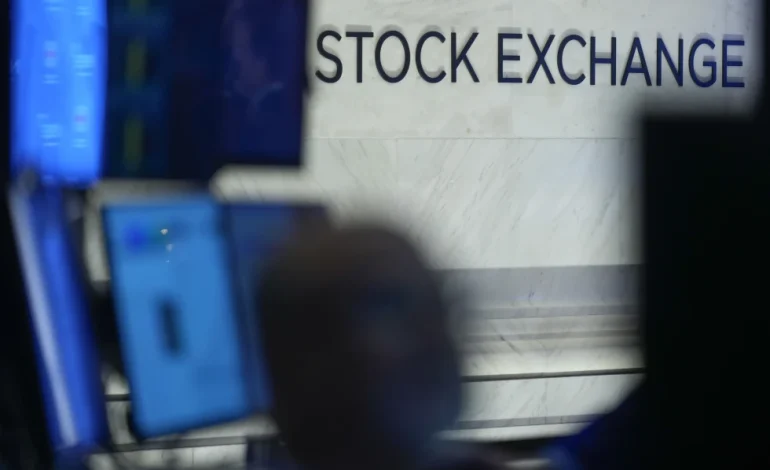Wall Street remained relatively stable on Tuesday following a strong rally the previous day, driven by hopes that President Donald Trump’s proposed tariffs might be more limited in scope than initially feared.
The S&P 500 remained largely unchanged in afternoon trading after surging 1.8% on Monday. The Dow Jones Industrial Average dipped 48 points, or 0.1%, while the Nasdaq composite rose 0.2%.
Despite recent market volatility, US stocks have managed to recover a portion of their losses from earlier this month. The S&P 500, which had entered a correction phase after dropping 10% from its all-time high, is now down roughly 6% from its peak. This decline has made the market appear less overvalued, addressing one of the key criticisms of its previous rapid rise.
However, financial strategists remain cautious, warning that further fluctuations are likely as the April 2 deadline for the implementation of new tariffs approaches. Trump’s proposed “reciprocal” tariffs aim to balance trade burdens among the US and its partners, but their full impact remains uncertain.
“We think markets are underplaying the risk of a tariff shock in early April,” said Ajay Rajadhyaksha, global head of research at Barclays.
Although there is optimism that the tariffs may be more targeted than initially feared, concerns persist over their potential effect on global trade and economic stability.
A report from The Conference Board on Tuesday indicated that consumer confidence has continued to decline, with expectations for the short-term economic outlook falling to their lowest level in 12 years. The index dropped to 92.9 in March, lower than the expected 94. Economists suggest this could be a warning sign for a potential economic slowdown.
While the current job market and economic activity remain stable, declining consumer sentiment raises concerns about future spending and business investment. Fears of inflation linked to the potential trade war, combined with economic uncertainty, have weighed on both consumers and businesses.
Among notable market movements, Trump Media & Technology Group (TMTG) saw a 6.7% surge in its stock price. The company, which operates the Truth Social platform, announced a partnership with Crypto.com to introduce “America-First” investment funds focused on digital assets and US-based industries.
Conversely, KB Home saw a 4.6% decline after reporting weaker-than-expected earnings. Homebuilders are already struggling with high costs, and potential tariffs could further drive up expenses, affecting the housing market.
Meanwhile, Tesla saw mixed performance, fluctuating between small gains and losses before settling 0.1% lower. The company has been facing declining sales in Europe, with registrations of its electric vehicles dropping nearly 50% in the first two months of the year. Analysts have pointed to increasing competition from Chinese automakers and the potential impact of CEO Elon Musk’s political controversies on the brand’s reputation.
Internationally, stock markets in Europe posted gains, while Asia had a mixed performance. In the bond market, Treasury yields eased, with the 10-year Treasury yield slipping to 4.30% from 4.34% on Monday.
Oil prices fell following reports that Russia and Ukraine had agreed to a ceasefire in the Black Sea, while US copper surged to a record high. Meanwhile, gold prices climbed 0.3% as investors sought safe-haven assets amid ongoing uncertainty.
With the Federal Reserve’s next steps on interest rates still uncertain and trade policy developments in flux, Wall Street is bracing for further potential volatility. While some analysts believe the stock market could rebound, others caution that economic risks—ranging from inflation concerns to geopolitical instability—could lead to further downturns.
“The issue at this point is that the risk/reward balance is much less favorable than before,” said Jonathan Krinsky of BTIG. “For investors to be aggressive buyers here, they would need to believe the S&P 500 is heading back above 6,000. While that’s a possibility, it’s not our base case.”
The Associated Press, Reuters, and Bloomberg contributed to this report.










The latest news in your social feeds
Subscribe to our social media platforms to stay tuned